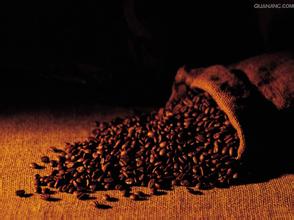COSTA joins hands with Hualian Group to carve up the Chinese coffee market with Starbucks
Starbucks: it has nothing to do with coffee
If you think a 58-yuan cup of Blue Mountain coffee is too expensive, it just shows the first success of Starbucks. In fact, chain coffee shops sell more standard cups and cheaper than any other self-owned coffee shop. Obviously, Starbucks loyal consumers are used to the price range of 28 yuan to 35 yuan.
A Starbucks insider told reporters, "for people who do not have coffee consumption habits before, the pricing of coffee is extremely vague, so Starbucks has given a seemingly reasonable standard with its price."
In this way, cost control is a rule that it must always keep in mind. Loyal consumers should find that from one day on, even if you sit down in the store for coffee, you will only use paper cups instead of mugs. The reason for this is only to reduce the labor cost of washing cups. Of course, this is only a negligible part, and the equity-based business model is the real means of cost control.
According to the proportion of shares held by Starbucks headquarters in Starbucks around the world, there are four main modes of cooperation between Starbucks and other parts of the world.
Starbucks has a 100% stake in places such as the UK and Australia, 50% in Japan and South Korea, 5% in Shanghai and Hawaii, and no stake at all in the Philippines, Singapore and Malaysia. it's just pure authorization.
While insisting on being a direct operator while giving up part of its stake, Starbucks hopes to complete its own business with the help of "the power of others".
As for those mugs, they didn't really disappear; on the contrary, they were molded into another tagged marketing tool for Starbucks.
From Christmas models to limited editions, Starbucks' exclusive mugs are listed prominently in each store, taking up nearly 2/3 of the row space, while coffee beans can only be used as a foil. This is the second success of Starbucks.
"it has nothing to do with coffee", written by Howard Biha, a former executive vice president of Starbucks, shows that it has never been a traditional cafe. In fact, it subverts the mode of operation and survival of traditional cafes.
A clue can also be seen in the location of the store. There are thousands of pedestrians shuttling back and forth on its route with a desire to buy. The reason why Starbucks coffee has considerable profit margins, the most important factor is the location. Because of these unique positions, it has the opportunity to target young consumers, and during the few minutes of waiting to make coffee, Starbucks staff will talk to you about the weather, work and even weekend appointments. This is how the stickiness of interaction between young people is established.
COSTA shareholders have a strong background
By comparison, COSTA is somewhat dull and stereotyped. The British brand lacks the gene for ease and teasing in its bones.
But this is not the core reason why it is so difficult for COSTA to surpass Starbucks. In fact, its consumers are also highly loyal to it.
According to public statistics, in European and American markets, COSTA has gradually kept pace with Starbucks and even surpassed them since 2007. However, in China, due to the time lag in entering the market, it may take more efforts to catch up.
Unlike Starbucks, WhitBread Group, the parent company behind COSTA, ranks among the top 100 listed companies in the UK, and Pizza Hut is also its brand. In China, its partner is Beijing Hualian Group, which has two A-share listed companies with strong strength. Both jointly funded the establishment of Hualian Kashijia (Beijing) Food and Beverage Management Co., Ltd.
"Coffee is run in a fast-food way, which is where COSTA is highly consistent with Starbucks. As a result, the Chinese market has gradually formed a confrontation between the two companies, and the competition a few steps away does bring pressure to both sides. And Hualian Group has real estate resources behind, I am afraid the advantages in site selection will gradually appear. " A coffee industry operator in Shanghai analyzed it to the reporter.
The rise of niche coffee shops
At the end of 2013, the Chinese market set off public opinion attacking Starbucks, questioning its "most expensive retail price" in China. But the most expensive premise is that Chinese consumption attitudes towards coffee are very different from those in Europe, the United States and Southeast Asia. In our eyes, coffee is a light luxury; in the eyes of Europeans and Americans, coffee is a necessity of life. Higher prices are caused by differences in consumption in the regional economy.
So can local coffee shops find an opportunity to rise amid these doubts?
Since it began to operate quietly in the late 1990s, carving time has unwittingly expanded more than 30 stores. But unlike the above two, carving time does not abandon the nature of cafes to fast food culture, on the contrary, it restores the essence of coffee-literary style. There is no doubt that this cafe, which has a collection of books and even movies, has attracted many post-80s and post-90s young writers and artists.
Since it is not a fast-food model, it will not be able to follow Starbucks' path of expansion. As a result, "carving time" from the direct camp to join. Today, it has become a huge commercial carrier, carrying coffee colleges, clothing brands, furniture furniture, public relations companies, design companies and other diversified business entities, and received two rounds of financing in 2010 and 2012. Carving time Culture Group also began to prepare the new third board listing plan. If realized, this may be the first listed company to make coffee.
Zoocoffee, which combines zoo culture with coffee culture, has opened up another model of coffee consumption in China's first-tier cities. As a result of striving to bring the laughter and relaxation of the zoo to the city, it has opened the gap with Starbucks and COSTA in decoration style, integrating unique animal models, murals and light and shadow, which is its biggest selling point.

Important Notice :
前街咖啡 FrontStreet Coffee has moved to new addredd:
FrontStreet Coffee Address: 315,Donghua East Road,GuangZhou
Tel:020 38364473
- Prev

Let coffee lovers have zero contact with Yunnan coffee
Coffee is my horse, running in my blood. This is what Liu Minghui, founder of Aichang Group, often said. Ma Chao, editor-in-chief of a magazine in Beijing, used this as his motto. When he came to the coffee farm for the first time on behalf of the roaster, he had a strong interest in the impact of raw bean processing on coffee quality. He gained a lot from this coffee trip to Yunnan. Bai, a cafe operator in Yichang, Hubei Province
- Next

There is great potential in China's coffee market, and there is a way to operate coffee stores.
First, the operation of coffee franchises should be stable and should not be lost: it mainly refers to regular customers and shop assistants. As franchisees, they must use their true feelings in dealing with regular customers. You can give small gifts during the holidays and make sure you get in touch with regular customers as much as possible. Second, to create a famous store, don't break your promise: if you don't insist on doing it at a discount, the franchisee should think from the long-term development of the store.
Related
- What is the difference between Indonesian Sumatra Mantinin coffee and gold Mantinin? How to distinguish between real and fake golden Mantelin coffee?
- What does bypass mean in coffee? Why can hand-brewed coffee and water make it better?
- Unexpected! Ruixing Telunsu lattes use a smoothie machine to foam milk?!
- % Arabia's first store in Henan opens into the village?! Netizen: Thought it was P's
- Does an authentic standard mocha coffee recipe use chocolate sauce or powder? Mocha Latte/Dirty Coffee/Salty Mocha Coffee Recipe Share!
- What is the difference between Vietnam egg coffee and Norway egg coffee? Hand-brewed single product coffee filter paper filter cloth filter flat solution!
- What is the difference between sun-cured and honey-treated coffee? What are the differences in the flavor characteristics of sun-honey coffee?
- How to make Italian latte! How much milk does a standard latte use/what should the ratio of coffee to milk be?
- How to make butter American/butter latte/butter Dirty coffee? Is hand-brewed coffee good with butter?
- Is Dirty the cold version of Australian White? What is the difference between dirty coffee/decent coffee and Australian white espresso?

